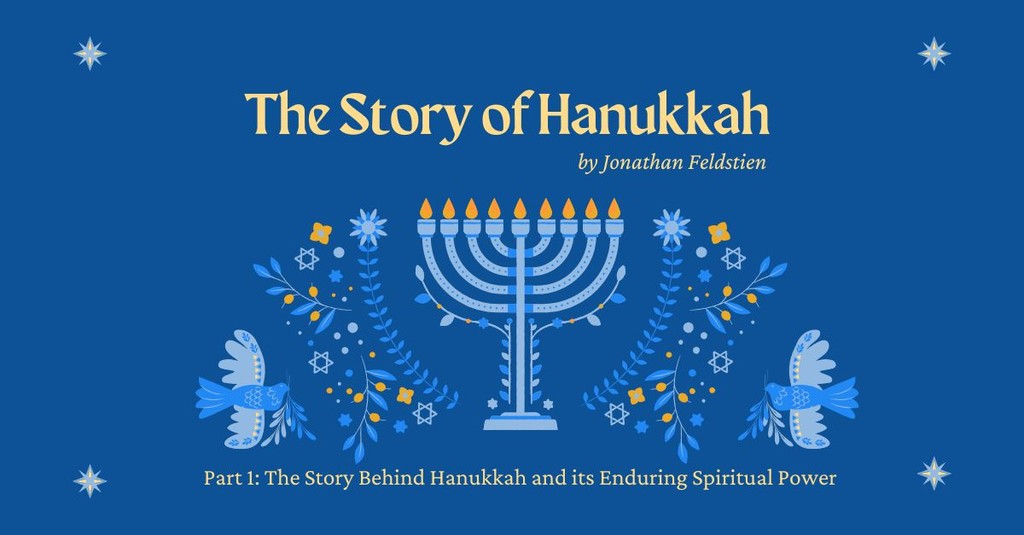
What Is Hanukkah?
Hanukkah, also spelled Chanukah due to the original Hebrew translation, is an eight-day Jewish festival that commemorates the rededication of the Second Temple in Jerusalem following the Jewish expulsion to Babylon and the Maccabean revolt against the Seleucid Empire. It is the penultimate celebration of religious freedom, resilience, and divine intervention, a miraculous military victory that is especially relevant and reliable this year. Along with the dynamic military victory, we also celebrate a spiritual victory and miracles associated with these, most vividly that for the rededication of the Temple in Jerusalem, only enough pure oil was found amid the Temple ruins to kindle the menorah for one day, yet supernaturally it lasted for eight days.
These two themes, the military victory, and the miracles, play out in Jewish customs that have lasted for millennia. These include kindling a special eight-branch Chanukah menorah (chanukiah), prayers and songs recounting the miracles and military victory, and a variety of fried foods to commemorate the miracle of the oil. Special Psalms of thanksgiving are added to our daily prayers. It’s also a family holiday, and modern Israeli culture reflects all of these, including the ever-present Chanukah music in the background in malls and other places.
Chanukah begins on the 25th day of the Biblical month of Kislev, which typically falls in November or December, based on the overlapping of the Biblical lunar calendar and the Gregorian (secular) solar calendar.
Photo Credit: SWN Design
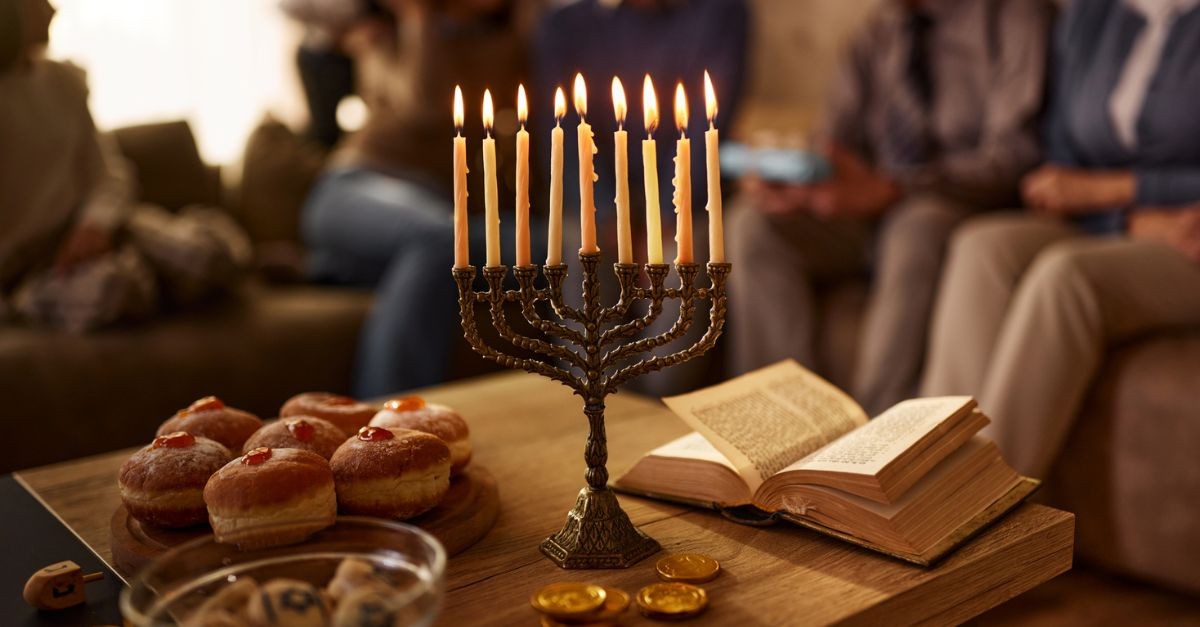
How Did the Celebration of Hanukkah Begin?
Chanukah's origins begin in the tumultuous period when the Land of Israel was under the rule and occupation of the Seleucid Empire, a Hellenistic kingdom formed after the breakup of Alexander the Great's empire. By the second century BCE, the Seleucid king Antiochus IV sought to enforce Greek culture and religion upon his diverse subjects, including the Jewish people. While others may have welcomed or embraced the prevailing Hellenistic culture, and as pagans thought nothing of adding a few other gods to their lineup of idols, the harsh policy of forced Hellenization prohibited many Jewish religious practices such as circumcision, the study of Torah, and observing the Sabbath. The Jewish population of the Land widely rejected and resisted these practices. Rubbing salt in the wounds of his occupation of the Land of Israel, Antiochus also desecrated the Temple by erecting an altar to Zeus and sacrificing unclean animals, which incited outrage among the Jewish population.
In 167 BCE, a priest named Mattathias and his five sons, including Judah Maccabee, led a revolt against the Seleucid forces. Despite being vastly outnumbered and poorly equipped, the Jewish rebels, known as the Maccabees, fought valiantly against all odds to defend their religious freedom. After a series of remarkable victories, the Maccabees eventually recaptured Jerusalem and purified the Temple, which had been desecrated.
I currently reside in Israel, and remarkably, I can look at the valley outside my home and know that one of the pivotal battles took place here. Incomprehensible as it is today, these battles involved elephants as tools of war. I look out the window and imagine Antiochus’ elephant-mounted forces charging into battle and squashing Jewish troops.
Following the military victory, the Maccabees sought to rededicate the Temple. Undoing the desecration required huge work, including kindling its menorah, the seven-branched golden candelabrum meant to remain perpetually lit as a symbol of God's presence. However, according to rabbinic tradition in the Talmud, there was only enough pure olive oil to burn for one day. Miraculously, the oil lasted eight days, allowing time to prepare and consecrate more of the pure olive oil needed. This event became the central miracle of Chanukah, and the festival was established to commemorate it.
Photo Credit: ©Getty Images/skynesher
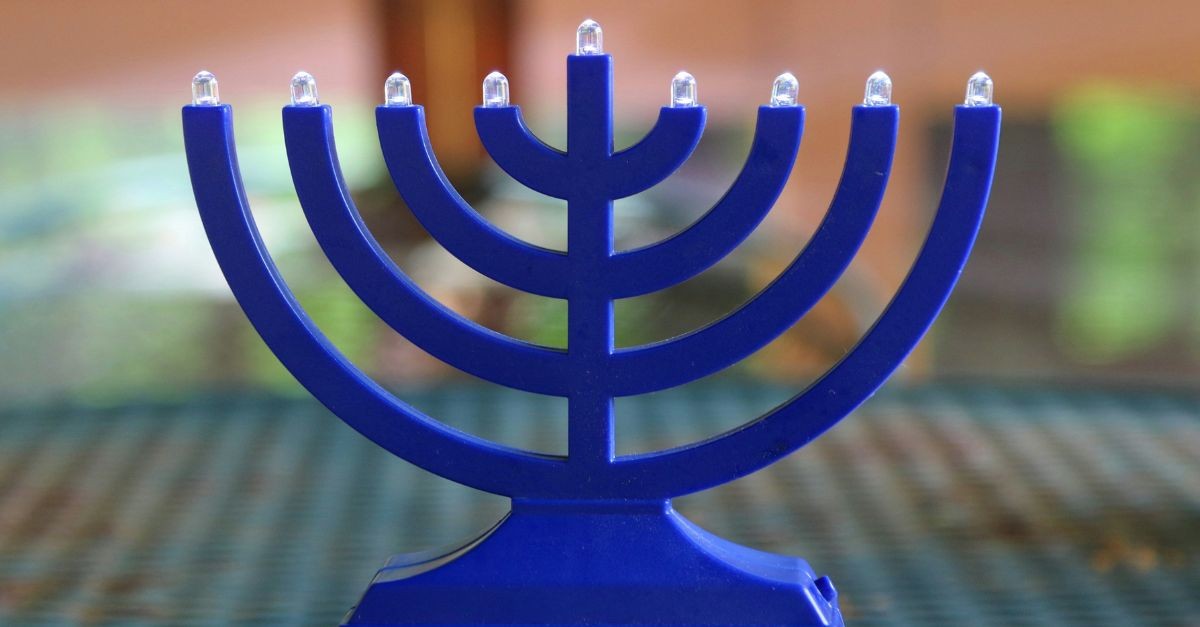
What Is the Menorah?
A symbol and significant metaphor of Chanukah is light, which represents the triumph of spiritual purity over corruption, of faith over oppression, and of the Jewish people’s enduring connection to their religious identity and the Land, the God of Israel over pagan gods, and God’s eternal covenant with the Jewish people. Especially today, in the midst of another existential war with enemies who want to exterminate the Jewish people physically, the symbolism of light overcoming darkness is relevant and vivid.
Lighting the menorah, translated chanukiah in Hebrew, is the most prominent and recognizable holiday practice. The custom is that on each night, one additional candle is lit until all eight candles are burning by the final night of the festival. It’s also traditional to light the chanukiah either outside or in a window to publicly celebrate the miracles that God did for us “in those days at this season.” Throughout Israel (and in major cities with a Jewish population around the world), public candlelightings every night are commonplace throughout Israeli cities and small towns, in malls, hospitals, and hotels. Basically everywhere.
Photo Credit: ©Unsplash/ David Trinks
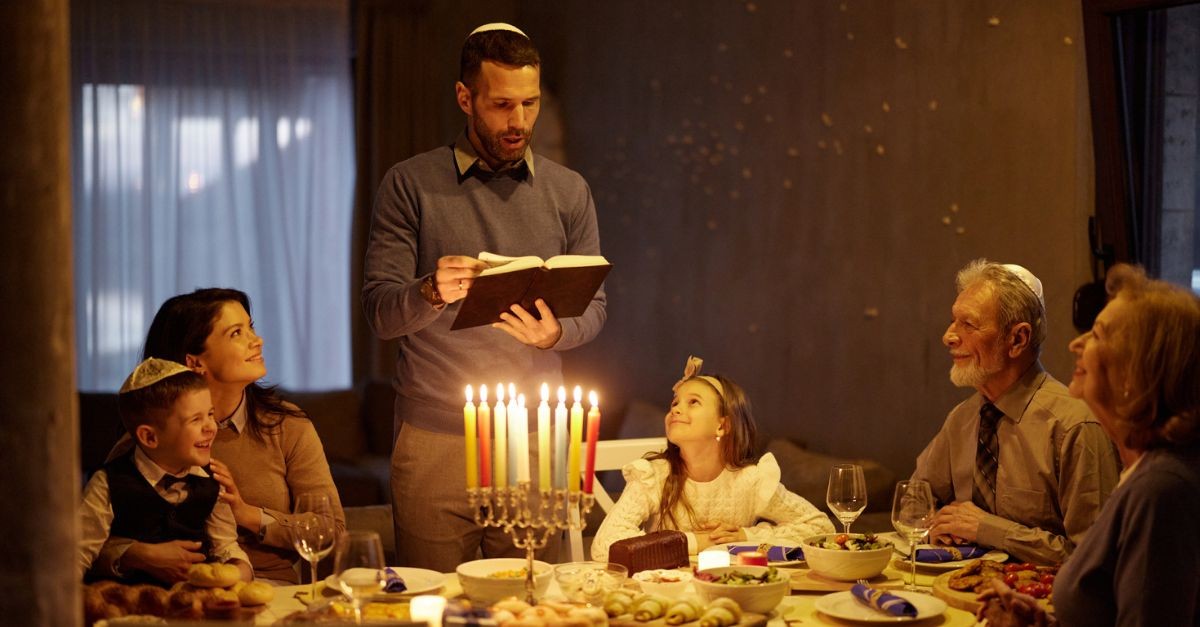
What Is the Spiritual Meaning of Hanukkah?
Though Chanukah is a post-biblical festival and is not as well-known as other Jewish holidays, including the three Biblical pilgrimage festivals: Passover, Sukkot (Tabernacles), and Shavuot (Pentecost), or Rosh Hashanah and Yom Kippur, it holds profound spiritual meaning. It underscores themes central to Judaism, such as the importance of religious freedom, the rejection of idolatry, and the protection of Jewish identity. The Maccabean Revolt was not just a political or military conflict; it epitomized the defense of the right to practice Judaism in the face of forced assimilation and paganism and against enemies vastly bigger and stronger.
The miracle of the oil, lasting eight days, serves as a testament to God's presence in the lives of the Jewish people and His eternal covenant, especially in times of crisis. If we believe in God and in His ability to perform miracles, especially in the land of miracles, this is hard to ignore. It is a reminder that faith and perseverance can result in miraculous outcomes even when the situation appears bleak.
Sadly, in 2024, Israel and the Jewish people have endured more than a year of physical and spiritual threats that are not dissimilar, making this coming year’s celebration all the more meaningful. But like any celebration the past year, it is fraught with the grief of loved ones who have been killed by the terrorists and more than 100 hostages still in captivity in Gaza.
Photo Credit: ©Getty Images/skynesher
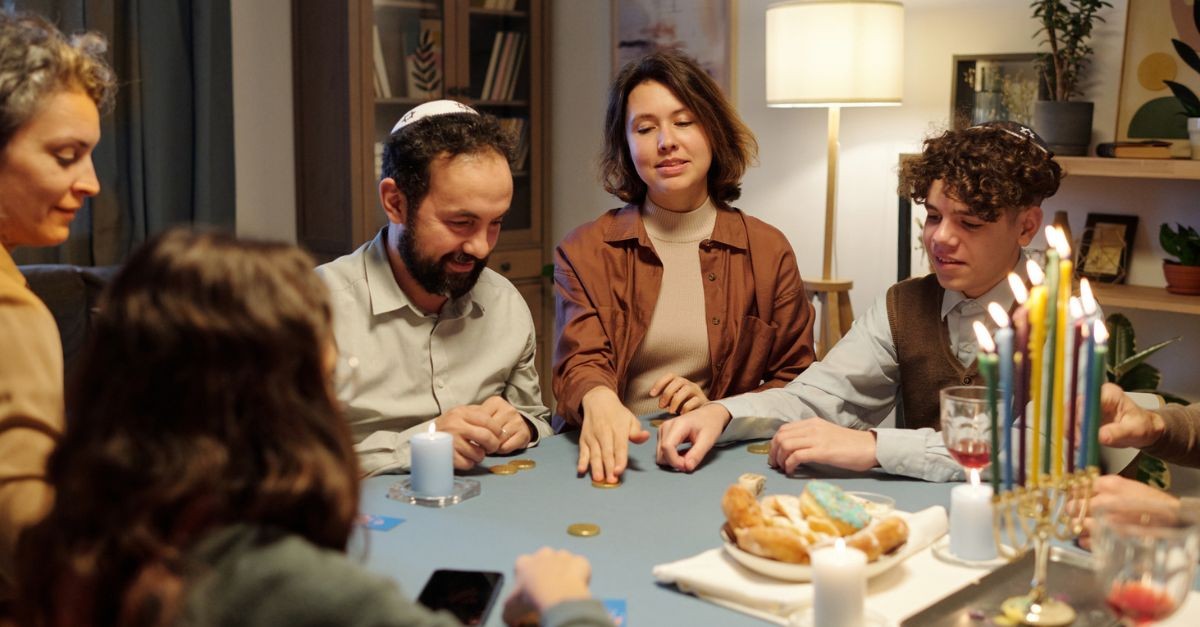
How Is Hanukkah Celebrated Today?
In addition to lighting the menorah (chanukiah,) several other customs and traditions are associated with Chanukah, many of which are deeply rooted in its themes of remembrance, joy, and community.
1. Sivivon (“Dreidel” in Yiddish) is a game played with a four-sided spinning top with Hebrew letters on each side. The letters—nun, gimel, hey, and pey— (נ, ג, ה, פ) stand for the phrase *Nes Gadol Hayah Po* ("A great miracle happened here"). In the diaspora, the letter *pey* is replaced by *shin* to reflect "A great miracle happened there" (נ, ג, ה, ש) as in the Land of Israel. Once, the game was used as a way to secretly study Torah under the guise of a game during times when Jewish learning was prohibited. Today, it is played for fun, often using chocolate coins, nuts, or other treats to “win” based on the value of the letter on which the sivivon lands. (Please be in touch if you’d like your own special sivivon from Israel.)
2. Like many Jewish holidays, we joke that the theme is, “They tried to kill us, we won, let’s eat.” Accordingly, Chanukah is a time for festive family meals, with many traditional fried foods to commemorate the miracle of the oil. Some of the most popular foods are latkes (potato pancakes), sufganiyot (jelly doughnuts), and sfinge (fried sweet dough). The use of oil in cooking these serves as a tangible reminder of the miracle, and the communal nature of meals fosters a sense of togetherness and celebration. In recent years, sufganiyot has been upgraded to include exotic flavors decorated like works of art.
3. In modern times, it has become common to exchange gifts during Chanukah, particularly among Jewish families in the West. This practice is believed to have evolved partly due to the holiday’s proximity to Christmas and the desire to give Jewish children something special during this festive season, thus the practice among Jewish communities in the diaspora. It’s less of a practice in Israel. However, another more traditional aspect of Chanukah giving is the distribution of *gelt* (Yiddish for "money’). In keeping with the Jewish value of charity, many families also make an effort to give to those in need during the holiday.
Photo Credit: ©Getty Images/shironosov
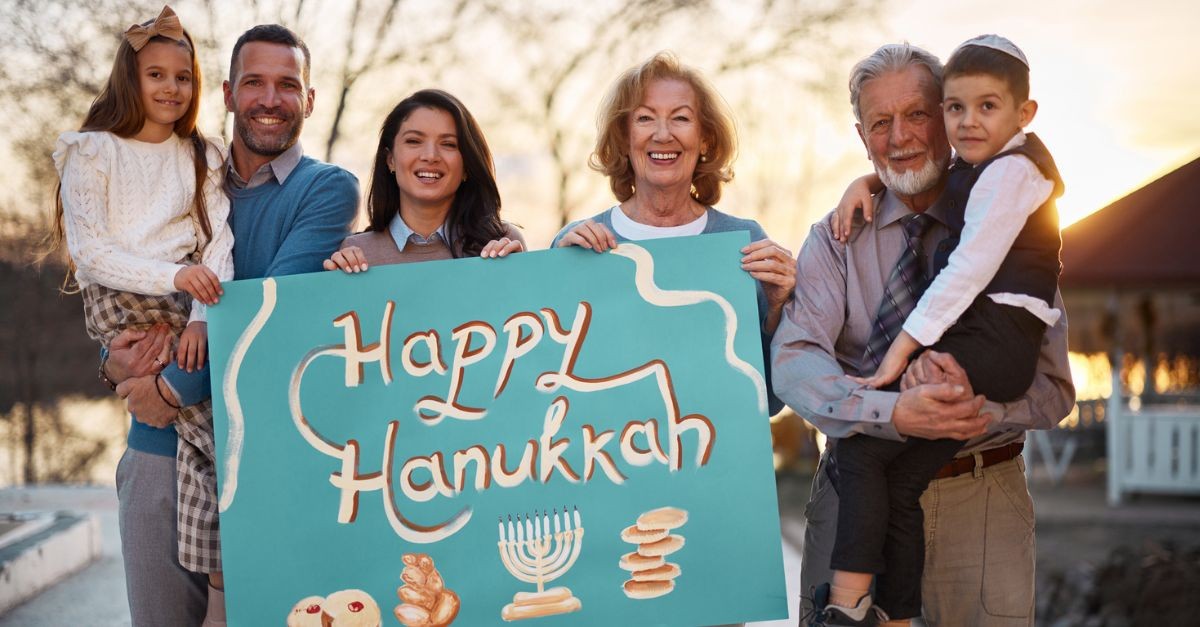
What Is the Modern Relevance of Hanukkah?
While Chanukah celebrates a specific historical event more than 2000 years ago, its messages resonate beyond the Jewish community and across time. There’s scarcely a period in which its themes and symbolism have not been relevant. Chanukah affirms universal values such as the right to religious freedom, hope, and the ability of a small, determined group of people to overcome overwhelming odds against evil. Recognizing miracles in our lives is highlighted through the miracles of Chanukah. Like many other stories of resistance, the Maccabean revolt underscores the idea that God and freedom are worth fighting for, even when the forces against it seem insurmountable.
Chanukah's emphasis on light is also a metaphor for truth, justice, and spiritual enlightenment. It is a powerful and essential reminder of the need to seek out and nurture goodness in the world today. In this way, the festival's themes of resilience, rededication, and the preservation of faith have found meaning in various contexts throughout Jewish history and continue to inspire people across cultures today.
Chanukah is a tribute to the Jewish people’s spirit and endurance, a reminder of divine presence in human affairs, and a call to recognize and cherish the light within ourselves and the world around us. To that extent, it’s not just something to reflect upon but to radiate.
Photo Credit: ©Getty Images/skynesher

Why Should Christians Care about Chanukah?
While Chanukah is typically looked at as a Jewish holiday, and it is, it’s noteworthy that only in the New Testament is there a mention of Chanukah: “It was winter, and Jesus was in Jerusalem at the time of Hanukkah, the Festival of Dedication.” (John 10:22 NLT) And it’s only in the Catholic bible that the Book of Maccabees is part of the scripture. Even if Christians don’t celebrate Chanukah, its significance to Christians is powerful, underscoring the unbreakable Jewish connection to the Land of Israel and the significance of the Temple in which Jesus worshipped. Without the Maccabees’ victory less than two centuries earlier, it’s possible that the Jews would have been defeated and assimilated into the Hellenist culture, and Jesus may not have been born a Jew. As Christians celebrate the birth of a Jewish baby boy in Judea on Christmas, it cannot be overlooked that the story could have come out differently.
Honoring the military victory, giving of gifts, and imperative to bless Israel, the Genesis 123 Foundation has established a program to give thousands of warm winter jackets to soldiers on the front line. You’re welcome to join, and share here.
This article is first in a multi-part series about Chanukah from an Orthodox Jewish perspective. Questions and comments can be sent to [email protected] and may be adapted into future articles.
Part 1: The Story Behind Hanukkah and its Enduring Spiritual Power
Part 2: Exploring the Spiritual Significance of Hanukkah for Christians
Part 3: 7 Differences and Similarities between Hanukkah and Christmas
Photo Credit: ©Unsplash/Jessica Fadal
The views expressed in this commentary do not necessarily reflect those of the Salem Web Network.

Jonathan Feldstein is president of the Genesis 123 Foundation (www,genesis123.co) whose mission is to build bridges between Jews and Christians and Christians with Israel. He was born and educated in the U.S. and immigrated to Israel in 2004. He is married and the father of six, and grandfather of four (so far).
Two sons and a son in law are currently serving in the IDF and have been involved in combat in Gaza and Lebanon since the October 7, 2023 Hamas massacre in Israel.
Jonathan is a leader working with and among Christian supporters of Israel, and shares experiences of living as an Orthodox Jew in Israel through his work, writing, and as host of the Inspiration from Zion podcast. Since the war began, he has authored more than 150 articles, and participated in a similar number of interviews, briefings, prayer events, and more.
Jonathan is working with Christian leaders all over the world to realize a true peace in Gaza, details of which can be found at www.SolutionforPeaceinGaza.com.
In 2023 he published the highly acclaimed book, Israel the Miracle (www.israelthemiracle.com), which makes a great gift for Chanukah and Christmas, and year round.
Originally published Friday, 25 October 2024.

